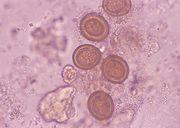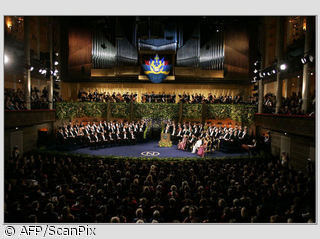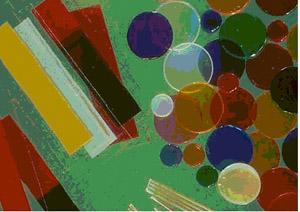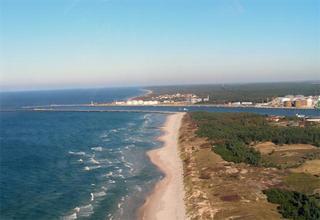CERN's New Particle Accelerator Promises Window on Big Bang
Published:
25 July 2004 y., Sunday
Scientists probing something as big as the origins of the universe sometimes need equipment to match. At the European nuclear research center CERN in Geneva, they're building the most powerful particle accelerator ever. The Large Hadron Collider, as it's called, is expected be able to recreate the conditions that existed at the time of the Big Bang, when the universe was born. Scientists say they hope the new tool will help them unravel the mysteries of matter and energy, and confirm or demolish existing theories.
Contrary to what its name implies, the Big Bang was not necessarily an explosion. Scientists consider the Big Bang to be more of a marker to note that the universe had a beginning. It is the moment in which the universe, space and time were created. CERN Physicist Richard Jacobsson says scientists do not know why or how the Big Bang occurred. But big particle accelerators such as the Large Hadron Collider help them to understand the process.
When the Large Hadron Collider (LHC) is completed in 2007, the superconducting magnets in the machine will operate at 271 degrees, just above absolute zero. However, Mr. Jacobsson says that the temperature created in the proton-proton collisions will be one billion times hotter than at the center of the sun.
Some 6,500 scientists from more than 80 countries currently collaborate on hundreds of ongoing experiments at CERN. The world's biggest particle physics laboratory is celebrating its 50th anniversary this year.
Šaltinis:
voanews.com
Copying, publishing, announcing any information from the News.lt portal without written permission of News.lt editorial office is prohibited.
The most popular articles

The European Commission announced today the award of three of the six contracts for the procurement of Galileo’s initial operational capability.
more »
 A British airline pilot says he hopes to become the world's first rocketman by the end of the year.
more »
A British airline pilot says he hopes to become the world's first rocketman by the end of the year.
more »
 Development plans to include exploiting local potential for environmental research and pharmaceuticals.
more »
Development plans to include exploiting local potential for environmental research and pharmaceuticals.
more »
 Sweet smell of success for researchers who've discovered how to enhance flower scent ten fold.
more »
Sweet smell of success for researchers who've discovered how to enhance flower scent ten fold.
more »
 French writer Jean-Marie Gustave Le Clezio wins the 2008 Nobel prize for literature.
more »
French writer Jean-Marie Gustave Le Clezio wins the 2008 Nobel prize for literature.
more »
 Two Americans and a Japanese scientist have won the Nobel Prize for Chemistry for their research on a glowing green protein found in jellyfish.
more »
Two Americans and a Japanese scientist have won the Nobel Prize for Chemistry for their research on a glowing green protein found in jellyfish.
more »
 Two French scientists who discovered the AIDS virus and a German who found the virus that causes cervical cancer are awarded the 2008 Nobel prize for medicine or physiology.
more »
Two French scientists who discovered the AIDS virus and a German who found the virus that causes cervical cancer are awarded the 2008 Nobel prize for medicine or physiology.
more »
 For rare earth and nano phosphors, luminescent materials for white LEDs, displays, general lighting and scintillator applications, McPherson delivers spectral test stations for deep ultraviolet (UV) excited, real-time measurements.
more »
For rare earth and nano phosphors, luminescent materials for white LEDs, displays, general lighting and scintillator applications, McPherson delivers spectral test stations for deep ultraviolet (UV) excited, real-time measurements.
more »
 On 30 September in Vilnius, a seminar, dedicated to the perspectives of international cooperation on solving the problem of chemical weapons dumped at sea, started.
more »
On 30 September in Vilnius, a seminar, dedicated to the perspectives of international cooperation on solving the problem of chemical weapons dumped at sea, started.
more »
 First stage of PRT-8 preparation for deployment to Afghanistan – refreshment of basic individual combat skills
more »
First stage of PRT-8 preparation for deployment to Afghanistan – refreshment of basic individual combat skills
more »
Germany's government is to spend six billion euros developing the country's hi-tech industries. The initiative will concentrate on research and development, particularly regarding high speed internet access, or "Broadband", as it is known.
more »